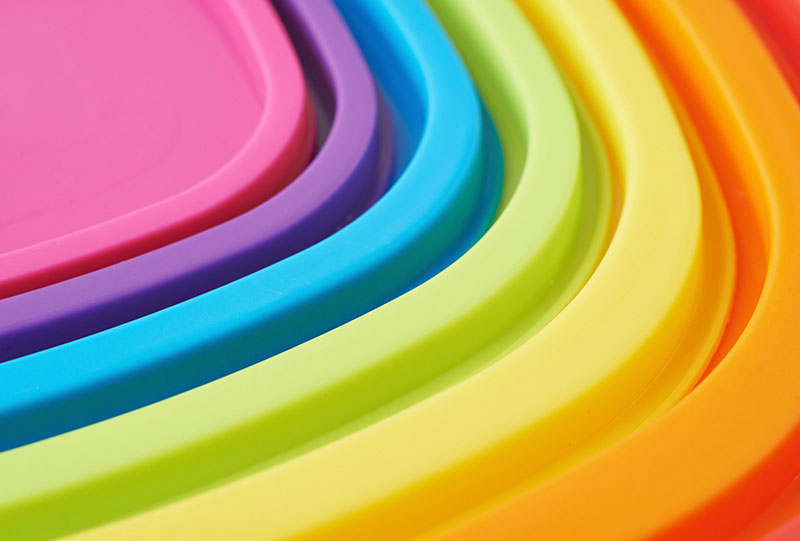Polyvinyl chloride (also known as PVC or vinyl) is one of the world’s most utilized plastic polymers. PVC can be made into multiple formulations so we will focus on the three most common types of PVC; rigid, flexible and CPVC.
Rigid PVC is the most common form of PVC and is also known as uPVC with the “u” meaning un-plasticized. Rigid PVC offers exceptional resistance to weathering, excellent fire resistance, robust chemical resistance and is strong, durable and safe. These attributes along with being highly cost-effective make rigid vinyl highly versatile. The building and construction industries rely heavily on PVC’s resistance to weathering and strong mechanical properties for replacing traditional materials such as metal and wood. Common building applications include roofing, flooring, siding, window frames, doors, and water pipes. Rigid PVC is also easy to machine, printable and easily thermoformed. This versatility makes it an excellent choice for signs, credit card stock and medical equipment housings.
PVC can be made softer with additional additives known as plasticizers. The resulting “flexible” PVC or fPVC is widely used in medical tubing, wire and cable covering, records, inflatables, clothing such as boots and rain jackets and as a replacement to traditional leather and rubber products. A popular end-use as a leather replacement is the flexible vinyl used to cover vehicle seats.
PVC can also be enhanced in an additional chlorination process that results in chlorinated PVC or CPVC. CPVC has superior properties to standard PVC and has become a go-to choice in plumbing and both freshwater and sewage piping. Traditional sewer and water pipes were constructed of metal which corrodes, clay which breaks and even wood which can rot. CPVC pipes are safe, easy to install, extremely durable and long-lasting. Some estimate that the majority of PVC and CPVC pipes will have a useful life between 40 – 100 years.
PVC and CPVC pipe are so widely used that this product type accounts for more than half of the PVC resin manufactured in the world.
The basic formulation of PVC is highly adaptable and can be made into multiple formulations to meet many demanding requirements. If you are looking for a cost-effective and highly versatile plastic, PVC may be a great option for your specific project. In future blogs, we will dig deeper into the individual attributes of the three types of PVC.
